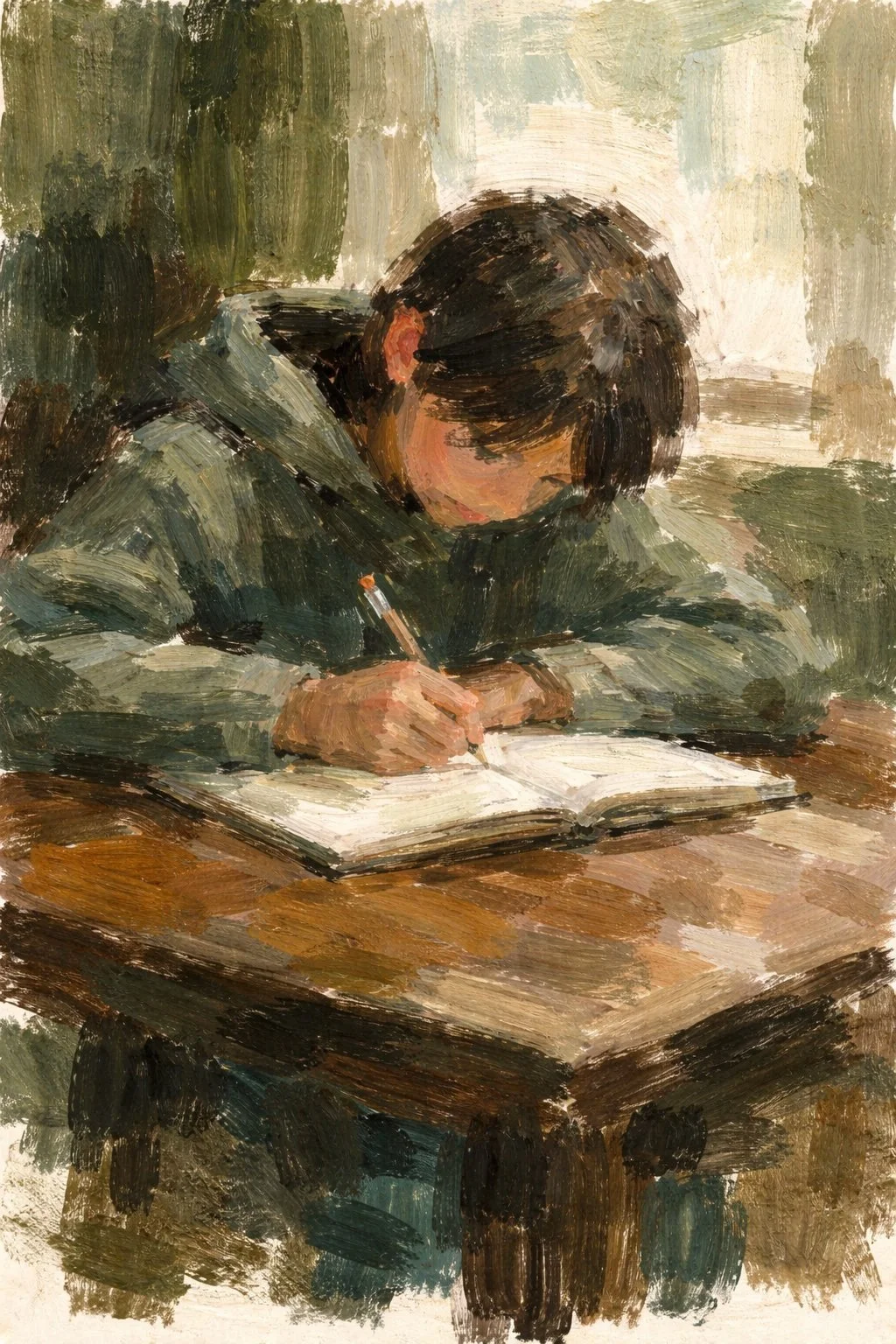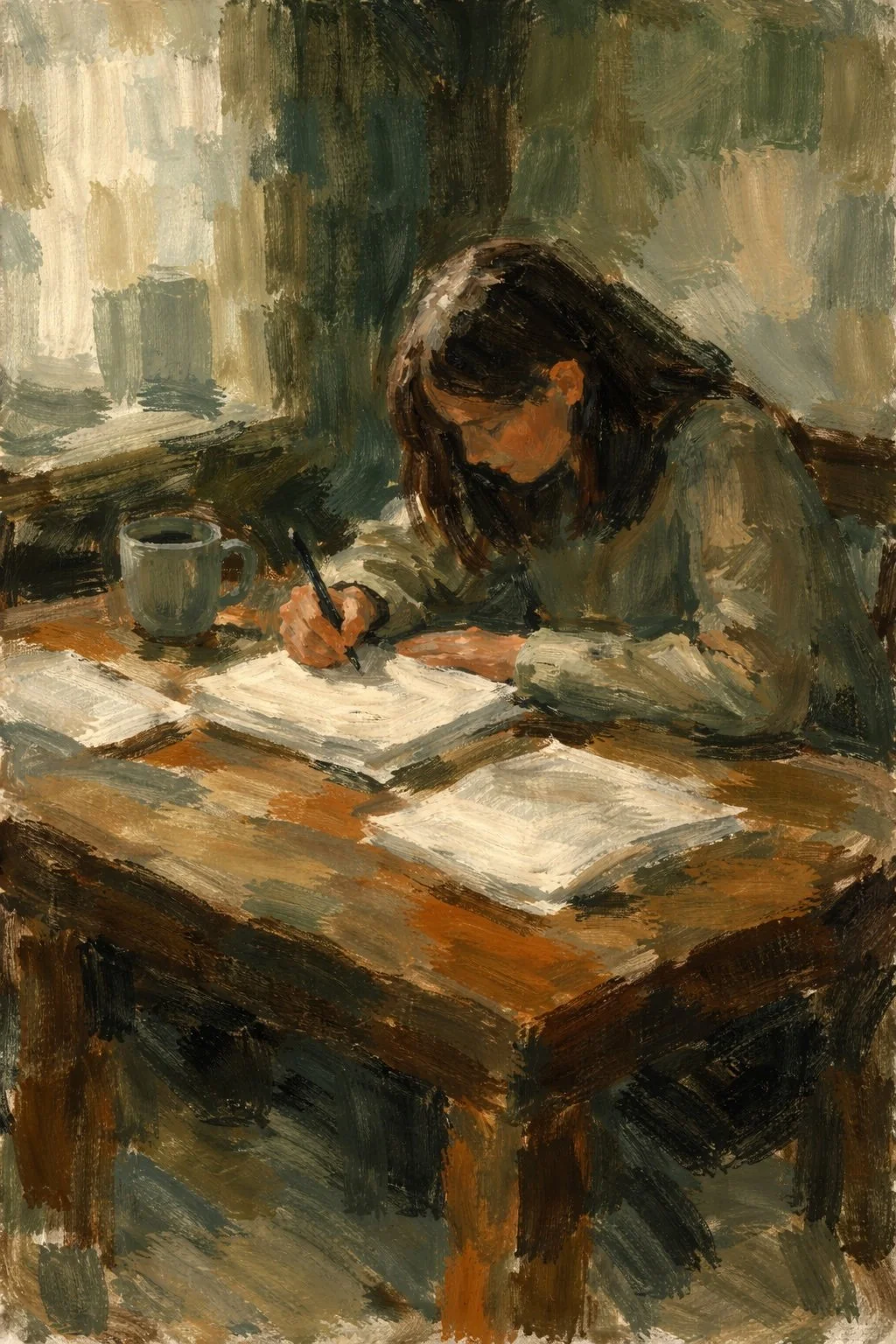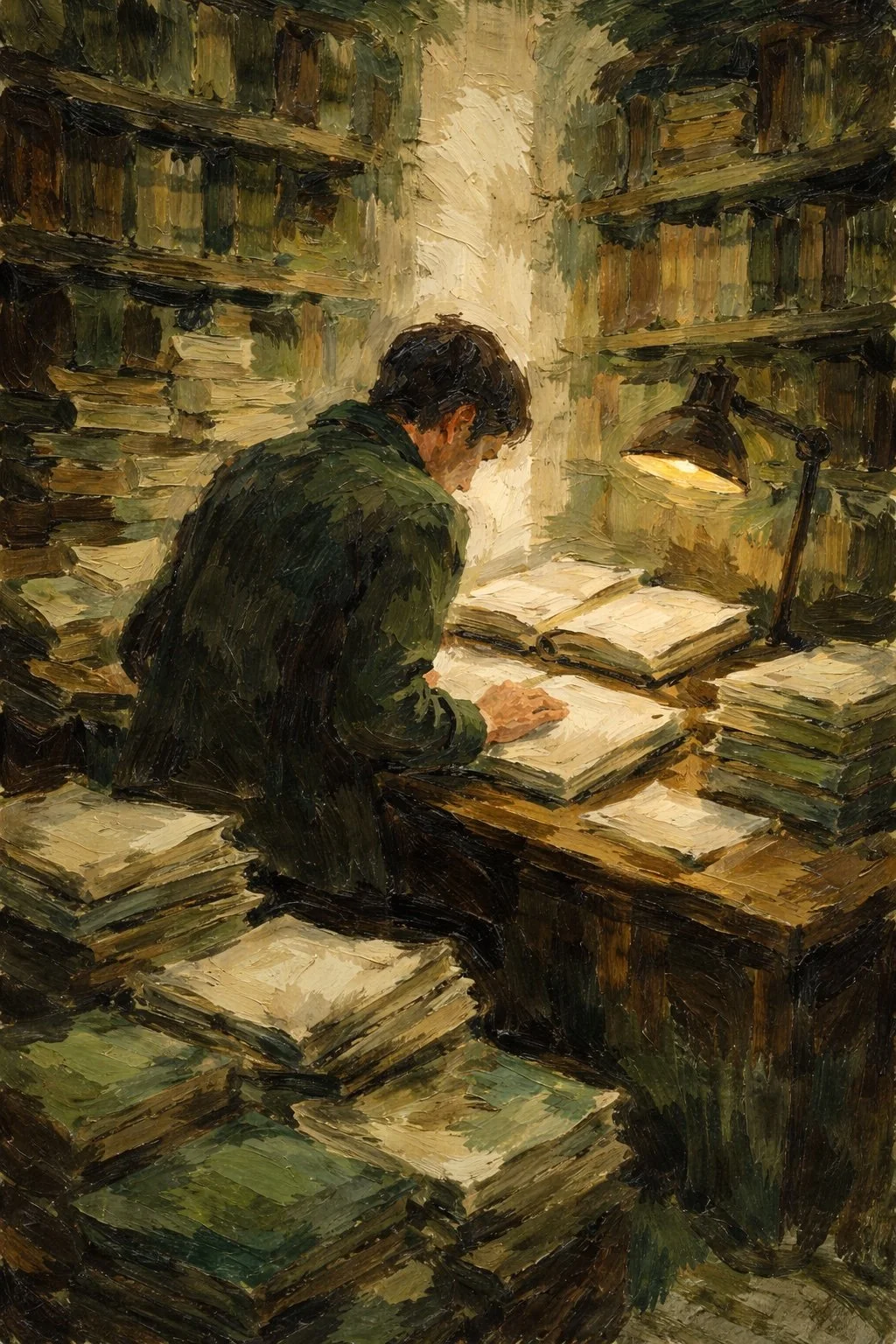Welcome to our informational blog.
Topics covered include literary theory and practice, academic writing techniques, philosophy of education, and explanations of our methods for strengthening creative intelligence.
Teaching Middle School Writers to Tell Their Own Stories
When personal writing is framed as a performance or a confession, students shut down. When it is framed as an act of noticing and shaping experience, they begin to relax into the work. A good writing coach helps students understand that a personal essay does not need to summarize their entire life or deliver a lesson. Instead, it can focus on a single moment, a small memory, or a question that feels important to their life right then.
How Writers Learn From the Places They Live
Writing coach services help a writer distinguish between genuine environmental influence and a larger narrative drift. Instead of offering generic advice about productivity or inspiration, a coach listens for how place is already shaping the work. They might notice that a city-based draft moves quickly but lacks reflection, or that a rural setting has slowed the prose to the point of inertia. How can the writer use their setting intentionally, instead of working against it?
Inside the Architecture of a Scene
Writing coaching creates a space where scenes can be examined without defensiveness. Many writers conflate a critique of a scene with a critique of themselves. A skilled coach helps separate those things. The scene is an object that can be adjusted, expanded, or pared back. This shift alone often leads to stronger, more confident revision.
The Private Reader
Many writers come to coaching with a sense that they are writing under surveillance. They describe feeling watched, judged, or prematurely evaluated. This feeling often traces back to workshop culture, academic grading, and early feedback that arrived before the work had fully formed. Over time, the writer internalizes those voices. A writing coach helps externalize them.
Talent and Readiness
Without guidance, a writer may spend years repeating the same mistakes without realizing it. They may misdiagnose structural issues as personal shortcomings or chase surface-level fixes that do not address deeper problems. Author mentorship provides context. They remind the writer that confusion is often a sign of proximity to something important.
Research, Invention, and the Historical Novel
A skilled manuscript critique does not ask whether every detail is verifiably correct, but whether the relationship between research and invention feels intentional. Early drafts of historical fiction often reveal imbalances. Some manuscripts cling too tightly to research, reproducing historical information that the story does not require. Others gesture toward history without enough specificity to anchor the narrative world. A fiction writing coach can identify where the archive is driving the story rather than supporting it, or where imaginative leaps feel unearned because the groundwork has not been laid.
The Hidden Structure of Longform Nonfiction
Longform nonfiction grows through successive acts of recognition. The writer recognizes the pattern within their subject. They recognize the limits of early drafts. They recognize when they need a new method. Eventually, they recognize the path the book wants to follow. A manuscript consultation supports this sequence of recognitions.
Holding Uncertainty in Creative Nonfiction
The essay form thrives when the writer embraces the unknown. Doubt is another invitation to attend closely to the shifting thoughts and feelings. A writer who holds that uncertainty with care discovers new patterns of meaning in the process. With the support of an online creative writing mentor, the writer’s capacity to stay inside this unsettled space expands.
How Memoirists Learn to Break the Timeline
Hiring a writing coach helps memoirists understand when chronology is serving the story and when it is limiting it. Some sections may need to unfold in time because the sequence itself carries meaning. Others may open more fully when freed from that constraint. The coach guides the writer toward the structure that best expresses the emotional movement of the work.
In Praise of What's Still Unfinished
A personal writing coach often helps a writer see the unfinished draft as evidence of progress instead of failure. A coach understands that writing unfolds in stages. Early drafts sprawl because they are supposed to sprawl. Characters contradict themselves because the writer is still learning who they are.
How Books Change With Us
Author mentors often encourage you to return to a book that once shaped you. They know that familiarity with the text gives you freedom to look more closely. Instead of rushing through the narrative, you can linger on a paragraph and notice how its movement is achieved. Mentors help you break down the mechanics of a moment that once felt mysterious. Their guidance gives you language for technique, which then becomes a tool you can apply to your own work.
The Books that Make Us
Hiring a writing coach can help a writer clarify the lineage of their influences. With careful attention, a mentor can observe where a manuscript leans toward a familiar pattern and invite the writer to decide whether the pattern supports the story or restricts it. Many writers discover that they mimic aspects of admired authors without noticing it. The imitation may appear in pacing, dialogue rhythm, or emotional structure. A coach can help the writer see these patterns clearly and decide which ones deserve to remain.
New Directions: Reading Outside Your Genre with the Support of a Writing Consultant
An online creative writing consultant observes a writer’s habits, patterns of thought, and preferred models. They also pay close attention to how the writer responds to new forms. This perspective allows the consultant to recommend texts that broaden the writer’s range and illuminate specific craft questions the writer is facing.
Learning to Remember: The Bildungsroman and the Writer’s Own Education
The best novel coaches understand that the writer’s craft and the writer’s consciousness are inseparable. To help someone shape a novel is to help them clarify their relationship to knowledge, power, and self-knowledge—the same concerns that animate the Bildungsroman. When done well, this relationship embodies the very philosophical principles that the Bildungsroman explores: autonomy, dialogue, moral perception, and the slow maturation of judgment.
The Writer as Teacher: What Fiction Teaches About Knowing and Being Known
The novelist creates conditions for insight, builds worlds that demand thought, empathy, and moral risk. The online writing coach, in turn, creates those same conditions for the writer. Both work in the same tradition of mentorship that has existed since the first dialogues of philosophy: one mind guiding another toward a clearer way of seeing.
The Slow Apprenticeship: Learning to Take Your Time as a Writer
To take one’s time as a writer is to choose depth over speed, discovery over performance. It is to accept that a book grows through cycles of disassembly and renewal. A good manuscript critique can illuminate those cycles, but it cannot replace the lived apprenticeship of time. That work—the slow, private, humbling labor of returning again and again to the page—is the truest form of study there is.
Finding Your Voice After Graduate School: Life Beyond the MFA
If the MFA is an apprenticeship in craft, author mentorship after the MFA is an apprenticeship in sustainability. It teaches how to endure the long stretches of uncertainty, how to balance creative work with the demands of life, and how to remain curious when the world is indifferent. In that sense, the search for voice is inseparable from the search for self—a continuous negotiation between artistic solitude and connection.
The Gift of Hard Books: Why Some Texts Make Us Better Readers
The pleasure is not in finishing, but in staying with it—in the slow accumulation of meaning, the small recognitions that come only through persistence. Literary coaching helps both writers and readers inhabit difficult spaces. The great books that stay with us—the ones that refuse to yield their secrets too quickly—teach us the art of sustained attention. They ask for something rare: our full presence.
On Catharsis: How Literature Helps Us Grieve
Revision mirrors the slow work of grief—revisiting, reframing, finding meaning where once there was only pain. A manuscript consultant can help the writer see the catharsis in this process. Art requires both feeling and form; grief requires both surrender and reconstruction.
Grammar and Cognition: How Syntax Shapes Perception
A skilled publishing consultant or developmental editor can help an author see the cognitive effects of their syntax—how grammatical form either amplifies or undermines the emotional and thematic work of a story. Many writers intuit these choices without naming them, but a consultant can illuminate the underlying mechanics, allowing the writer to refine them with intention.





















